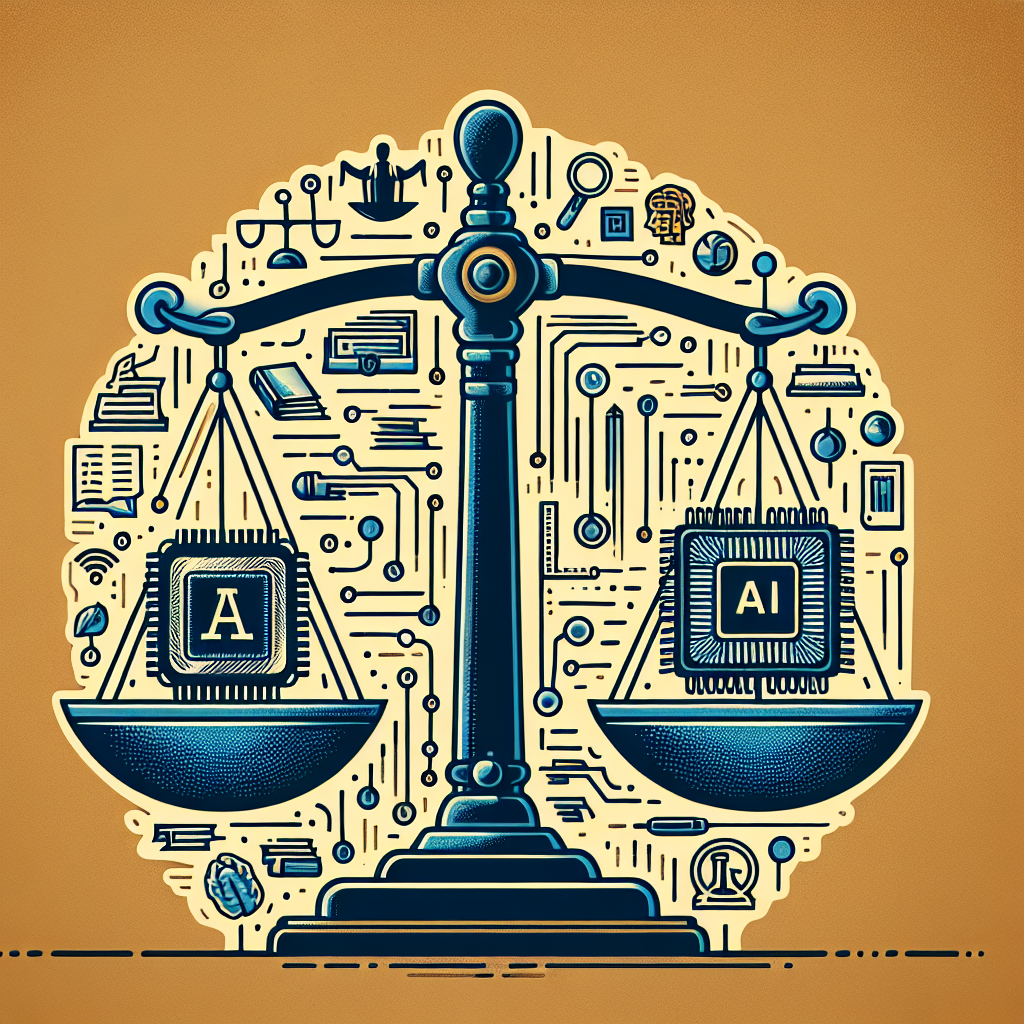In recent years, the use of artificial intelligence (AI) has been revolutionizing various industries, including law. Intellectual property law, which governs the protection of creations of the mind, such as inventions, literary and artistic works, and symbols, names, and images used in commerce, is no exception. AI technology has the potential to streamline and improve many aspects of intellectual property law, from patent searches to copyright enforcement. In this article, we will explore the use of AI in intellectual property law and its implications for the legal profession.
One of the primary ways in which AI is being used in intellectual property law is through the automation of repetitive tasks. For example, AI-powered tools can assist patent attorneys in conducting prior art searches, which involve reviewing existing patents and publications to determine if an invention is novel and non-obvious. Traditionally, this process can be time-consuming and labor-intensive, requiring attorneys to manually review large volumes of documents. AI can help expedite this process by quickly analyzing vast amounts of data and identifying relevant information, saving attorneys time and effort.
Additionally, AI can assist in the drafting of patent applications. By analyzing past patent filings and existing patents, AI can help attorneys identify language and formatting conventions that are likely to result in successful patent applications. This can help improve the quality of patent applications and increase the chances of them being granted.
In the realm of copyright law, AI can be used to identify and enforce copyright infringement. Content recognition algorithms can scan the internet for unauthorized use of copyrighted material, such as images, music, or text, and alert copyright holders to potential violations. This can help copyright holders protect their intellectual property rights and take appropriate legal action against infringers.
Another area where AI is making an impact in intellectual property law is in the realm of trademark law. AI-powered tools can help brand owners monitor their trademarks and identify potential instances of trademark infringement. By analyzing online and offline sources, such as social media, e-commerce platforms, and trademark databases, AI can help brand owners protect their trademarks and enforce their rights.
Overall, the use of AI in intellectual property law has the potential to increase efficiency, reduce costs, and improve the quality of legal services. However, there are also challenges and concerns associated with the use of AI in this field. For example, there are concerns about bias in AI algorithms, which could result in unfair outcomes for certain individuals or groups. Additionally, there are questions about the ethical implications of using AI to make legal decisions, such as whether AI can truly replicate the nuanced reasoning and judgment of human attorneys.
Despite these challenges, the use of AI in intellectual property law is likely to continue to grow in the coming years. As AI technology advances and becomes more sophisticated, it will likely become an indispensable tool for attorneys and other legal professionals working in the field of intellectual property law.
FAQs:
Q: Can AI replace human attorneys in intellectual property law?
A: While AI technology can assist attorneys in conducting research, drafting documents, and other tasks, it is unlikely that AI will completely replace human attorneys in the field of intellectual property law. Human attorneys bring a level of expertise, judgment, and creativity that AI cannot replicate.
Q: How can I incorporate AI into my intellectual property law practice?
A: There are many AI-powered tools and software available that can help attorneys streamline their work in intellectual property law. Research different options and consider incorporating AI technology into your practice to increase efficiency and improve the quality of your legal services.
Q: What are the ethical considerations of using AI in intellectual property law?
A: There are several ethical considerations to keep in mind when using AI in intellectual property law. These include concerns about bias in AI algorithms, the potential for AI to make errors or produce unfair outcomes, and questions about the accountability and transparency of AI systems. It is important to be mindful of these considerations and to use AI technology responsibly in your practice.

